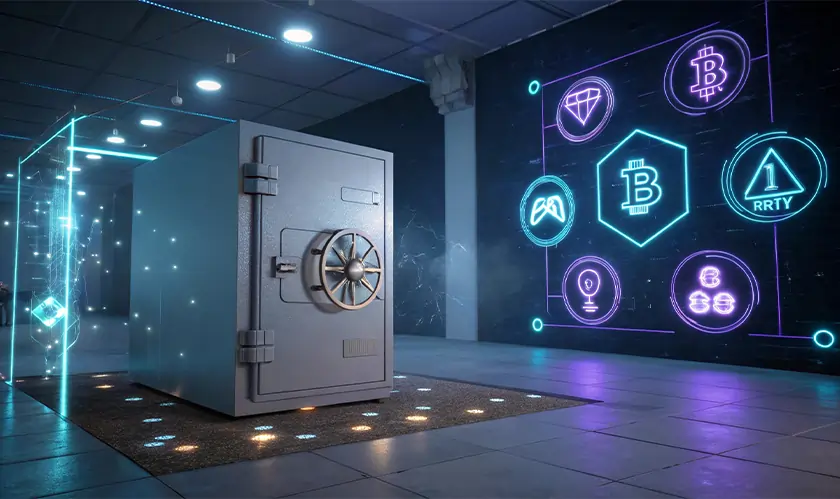Home Technology Blockchain The Role of Blockchain in Web3...
Blockchain

CIO Bulletin
04 Febuary, 2025
The use of technology is transforming sectors – even gaming isn't left out! With the shift from Web 2 to Web 4 happening, the importance of blockchain in boosting security for gaming tokens is more significant than before. In this article, we delve into how blockchain strengthens token security in the Web 4 gaming space to create a transparent playground for both gamers and developers alike.
Web3 gaming symbolizes an era in which gamers are empowered by decentralization and blockchain technology. The best web3 games differ from traditional gaming by utilizing blockchain to establish decentralized ecosystems, as opposed to relying on centralized servers to manage game assets. Players experience ownership of in-game assets, such as tokens that are exchangeable, saleable, or usable in various games. This decentralization not only enhances player autonomy but also calls for stringent security measures to safeguard valuable assets.
Blockchain technology offers a foundation for Web3 gaming with its decentralized setup. Each transaction logged on the blockchain forms an unalterable record. This openness guarantees token genuineness and prevents deceit and unauthorized replication. Furthermore, decentralization means no single entity manages the network, which lessens susceptibility to cybercrime or tampering.
Smart contracts are crucial for boosting the security of tokens by executing agreements through code without human involvement in Web3 gaming scenarios. They oversee token transfers and ensure that transactions take place only under specific conditions, thereby reducing errors and preventing fraud in gaming settings.
Various token protocols, like ERC 20 and ERC 721, play a role in maintaining security and compatibility within Web3 gaming systems. While ERC 20 tokens are used for assets to ensure uniformity and ease of use across platforms, ERC 721 tokens represent distinct non-fungible assets, such as rare in-game items, enabling players to trade or transfer these unique assets securely. Following these protocols not only boosts security but also promotes a smooth gaming experience for developers and players alike.
Decentralized identity solutions enhance security by giving users autonomy over their data. With blockchain-based identities in place, user verification is streamlined without relying on databases that are prone to security breaches. Additionally, various access control measures, like signature wallets, offer added layers of security. This system mandates approvals for transfers, minimizing the risk of unauthorized access.
Despite the advantages it offers, blockchain technology poses obstacles that developers need to tackle. Scalability is a concern, as blockchain networks may face difficulties when dealing with transaction loads, which could result in delays. Furthermore, the intricate nature of smart contracts necessitates comprehensive audits to avoid weaknesses. Developers must find a middle ground between security and user convenience, ensuring smooth interactions without sacrificing safety.
The outlook for Web3 gaming appears bright as blockchain technology is set to fuel advancements in the field. Developers are working on enhancing security measures to protect players' virtual belongings. Innovations like layer-two solutions are being introduced to improve scalability and reduce costs in Web 4 gaming, making it more accessible to a wider range of users. By leveraging the capabilities of technology, the industry can establish a more diverse gaming environment.
To summarize the discussion, blockchain technology is essential for bolstering security in the Web3 gaming world. Its decentralized and transparent characteristics establish a foundation for protecting assets. With the help of smart contracts, protocols, and decentralized identity solutions, blockchain provides strong security measures tailored to meet the specific requirements of Web3 gaming. By tackling obstacles and embracing advancements, developers can ensure a prosperous environment for gamers across the globe. In the changing landscape of the industry, blockchain technology is set to remain essential in web gaming, granting players autonomy and security over their in-game possessions.







